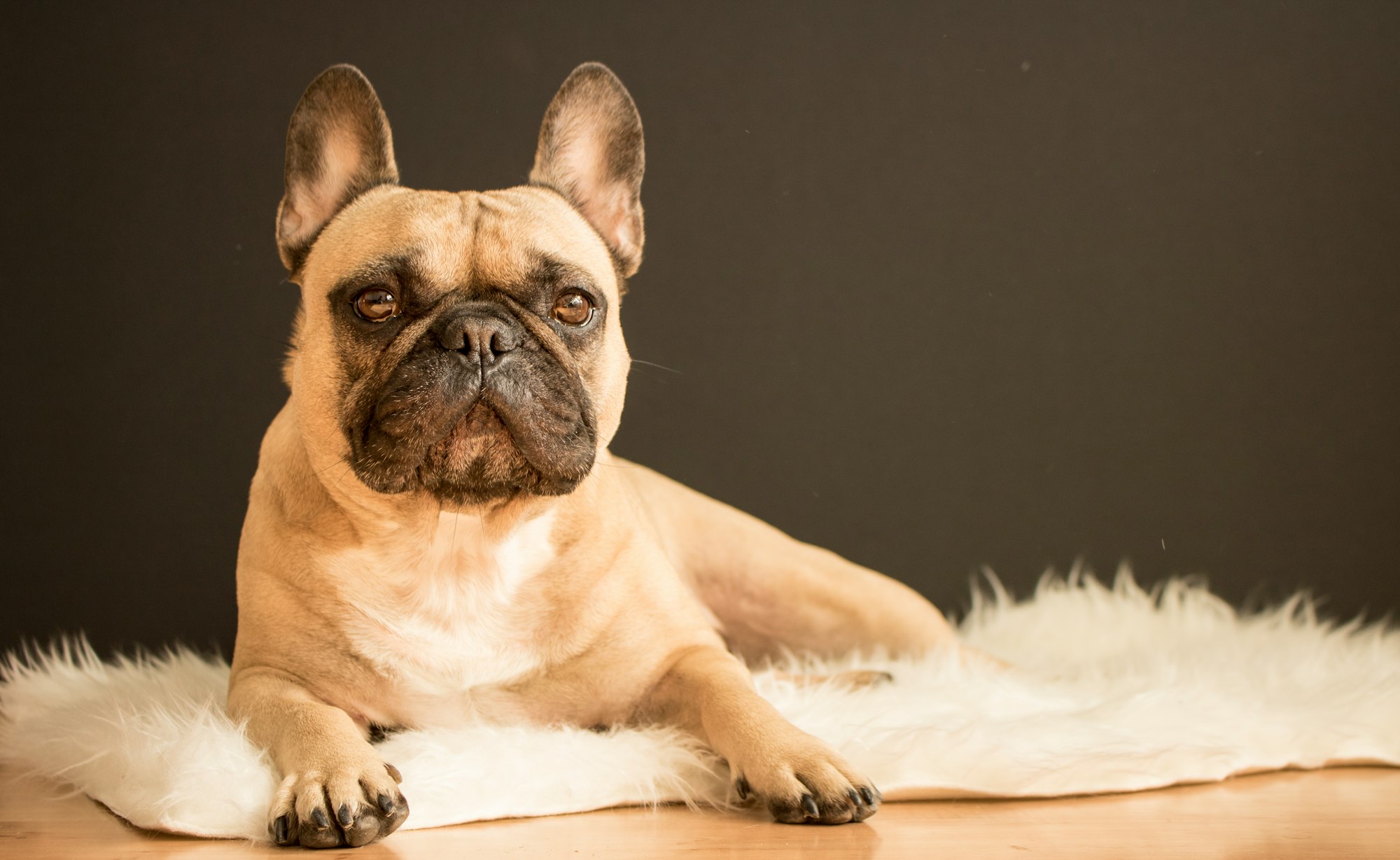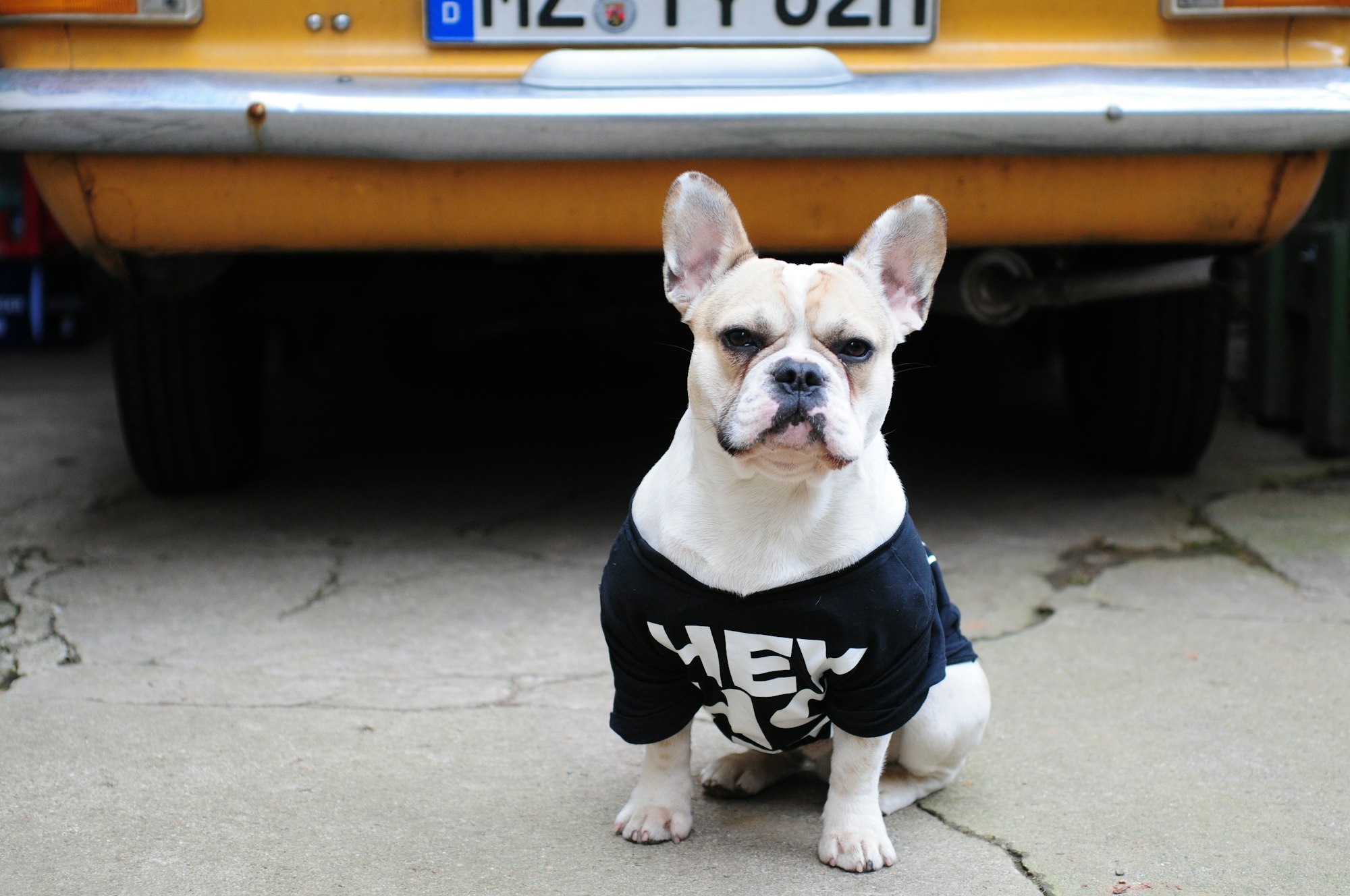Mini bulldogs, also known as miniature bulldogs, are small-sized bulldog breeds that are bred to have all the adorable features and characteristics of a traditional bulldog, but in a smaller package. While there are different variations of mini bulldogs, they are typically created by crossing breeds such as the English Bulldog, French Bulldog, and Pug. These breeds are carefully selected to produce a smaller version of the bulldog with unique traits and characteristics.

Key takeaways:
1. Mini bulldogs are a crossbreed: Mini bulldogs are created by crossing different breeds, resulting in their unique characteristics and appearance.
2. Mini bulldogs require special care: They have specific needs in terms of diet, exercise, grooming, and health management to ensure their well-being.
3. Consider your living arrangements and commitment: Before getting a mini bulldog, assess if you have enough space and time to meet their requirements and provide them with a suitable living environment.
What is a Mini Bulldog?
"What is a Mini Bulldog?" A mini bulldog is a smaller version of the standard bulldog breed. They are specifically bred to possess the same characteristics and traits as their larger counterparts, but in a more compact size. Generally, mini bulldogs have a weight ranging between 20-40 pounds and stand at a height of approximately 12-16 inches. Just like regular bulldogs, they have the trademark wrinkled face, stocky build, and gentle nature.

Mini bulldogs make excellent companions, especially for individuals who may have space constraints and cannot accommodate a larger dog. It's important to note that even though mini bulldogs are undeniably adorable, they still require regular exercise and proper care in order to ensure their overall health and well-being.
What Breeds are Crossed to Create Mini Bulldogs?
Mini Bulldogs are created by crossing different breeds to achieve their unique characteristics. The specific breeds crossed may vary, but some common ones include the English Bulldog and the Pug. These crossings result in a smaller version of the Bulldog breed, known for their adorable appearance and friendly personalities. By combining the traits of these breeds, Mini Bulldogs inherit the Bulldog's distinctive facial features along with the Pug's playful and sociable nature. These breed combinations contribute to the Mini Bulldog's lovable temperament and make them a popular choice among dog lovers.
The characteristics of Mini Bulldogs are achieved by crossing different breeds. "What Breeds are Crossed to Create Mini Bulldogs?" The specific breeds crossed may vary, but commonly, English Bulldog and Pug are used in this process. These crossings result in a smaller version of the Bulldog breed, known for their adorable appearance and friendly personalities. By combining the traits of these breeds, Mini Bulldogs inherit the Bulldog's distinctive facial features along with the Pug's playful and sociable nature. These breed combinations contribute to the Mini Bulldog's lovable temperament and make them a popular choice among dog lovers.
Characteristics of Mini Bulldogs
Mini Bulldogs are beloved for their unique and charming characteristics. Dive into the fascinating world of these adorable canines as we explore their physical appearance, temperament, and personality. From their distinct features to their playful and friendly nature, get ready to discover what makes Mini Bulldogs such extraordinary companions. Get ready to be enthralled by their endearing traits and learn how these pint-sized pups add so much joy to the lives of their owners.
Physical Appearance
The physical appearance of mini bulldogs is characterized by their unique features and compact build.
- Head: Mini bulldogs have a large and square-shaped head, with wrinkles and folds on their face.
- Body: They have a muscular and compact body, with a broad chest and short, sturdy legs.
- Coat: Their coat is short and smooth, with various colors and patterns such as brindle, white, fawn, or pied.
- Face: Mini bulldogs have a pushed-in face with a flat nose and wide-set eyes.
- Ears and Tail: Their ears are round and set high on the head, and their tail is typically short and carried low.
Temperament and Personality
Mini Bulldogs are renowned for their loving and friendly temperament and personality, which makes them ideal companions. Their loyalty, gentleness, and affection make them perfect pets for both families and individuals. These delightful canines are also known for their adaptability, effortlessly adjusting to various living situations. While they generally get along well with children and other pets, proper socialization remains crucial. It's worth noting that individual personalities may differ, but as a whole, Mini Bulldogs are typically easygoing and sociable. Here's a pro-tip: Regular exercise and mental stimulation are key in maintaining their friendly and playful personalities.
Caring for a Mini Bulldog
Looking to provide the best care for your mini bulldog? Let's dive into the essentials of caring for this adorable breed. From ensuring a proper diet and nutrition to meeting their exercise and activity needs, we'll cover it all. Plus, we'll explore the grooming requirements to keep your mini bulldog looking their best. Get ready to give your furry friend the love and care they deserve!

Diet and Nutrition
A proper diet and nutrition are essential for the health and well-being of mini bulldogs. Here are some key points to consider when it comes to their diet and nutrition:
- Choose a high-quality, balanced dog food specially formulated for bulldogs to meet their specific nutritional needs.
- Mini bulldogs are prone to obesity, so it's important to monitor their calorie intake and avoid overfeeding.
- Feed them regular meals at consistent times to maintain a healthy eating routine.
- Incorporate fresh fruits and vegetables as healthy treats or additions to their meals.
- Provide plenty of fresh water at all times to keep them hydrated.
- Consult with a veterinarian to determine the appropriate portion sizes and feeding schedule for your mini bulldog based on their size, age, and activity level.
Proper diet and nutrition play a crucial role in maintaining the health and well-being of mini bulldogs. It is important to remember these key points when it comes to their diet and nutrition:
- Choose a high-quality, balanced dog food specifically designed for bulldogs to fulfill their unique nutritional requirements.
- Mini bulldogs are more likely to develop obesity, so it is vital to monitor their calorie intake and avoid overfeeding.
- Establish a consistent meal schedule to ensure a healthy eating routine.
- Incorporate fresh fruits and vegetables as nutritious treats or meal additions.
- Always provide an ample supply of fresh water to ensure proper hydration.
- Seek advice from a veterinarian to determine the ideal portion sizes and feeding schedule for your mini bulldog, taking into account their size, age, and activity level.
Exercise and Activity Needs
To address the exercise and activity needs of a Mini Bulldog, it's important to consider the following:
- - To meet their exercise and activity needs, Mini Bulldogs require regular physical activity to maintain a healthy weight and prevent boredom. Taking them for daily walks or engaging in interactive play sessions can help achieve this.
- - Alongside physical exercise, providing mental stimulation is crucial for Mini Bulldogs as they are intelligent and curious. Consider offering puzzle toys or engaging them in interactive games to keep their minds occupied.
- - When outdoor exercise is not feasible due to inclement weather, planning indoor activities like obedience training or hide-and-seek can help keep Mini Bulldogs active and entertained.
- - Due to their brachycephalic (short-nosed) structure, Mini Bulldogs may experience difficulty breathing during intense exercise. It is vital to be mindful of their limitations and avoid overexertion to prevent overheating and discomfort.
- - Arranging playdates with other dogs not only provides social interaction but also offers additional exercise opportunities for Mini Bulldogs.
Remember to consult with your veterinarian to develop a tailored exercise plan that meets the specific needs of your Mini Bulldog.
Grooming Requirements
Grooming Requirements are an essential part of caring for a Mini Bulldog. Here are some guidelines to keep in mind when it comes to grooming:
- Regular brushing: To maintain a healthy coat, it is important to regularly brush your Mini Bulldog's short, fine fur and remove any loose hair.
- Bathing: Keeping their skin clean and their coat shiny requires bathing as needed.
- Ears cleaning: Regularly check and clean your Mini Bulldog's ears to prevent infections and the buildup of wax.
- Teeth brushing: To prevent dental issues, make sure to brush your Mini Bulldog's teeth on a regular basis.
- Nail trimming: Avoid discomfort and overgrowth by trimming your Mini Bulldog's nails regularly.
By adhering to these important Grooming Requirements, you can ensure that your Mini Bulldog looks and feels their best.
Health Issues and Common Concerns
Discover the fascinating world of health issues and common concerns surrounding mini bulldogs. From their genetic health problems to challenges in obesity and weight management, as well as joint and mobility issues, we'll uncover key insights and practical knowledge. Get ready to explore the various aspects affecting the well-being of these adorable canine companions and gain a deeper understanding of their unique health needs.
Genetic Health Problems
Mini Bulldogs, like all dog breeds, can be prone to certain genetic health problems. It's important for potential owners to be aware of these Genetic Health Problems to ensure the well-being of their furry friends. Here are some common Genetic Health Problems that can affect Mini Bulldogs:
- Brachycephalic Syndrome: due to their flat faces, Mini Bulldogs may experience respiratory difficulties.
- Elbow and hip Dysplasia: this condition affects the hip and elbow joints, leading to pain and mobility issues.
- Eye Problems: Mini Bulldogs may be prone to various eye conditions, such as cherry eye, dry eye, and cataracts.
- Heart Disease: some Mini Bulldogs can develop heart problems, including valve disorders and cardiomyopathy.
It's essential for Mini Bulldog owners to work closely with reputable breeders and veterinarians to minimize the risk of these Genetic Health Problems through responsible breeding practices and regular veterinary check-ups.
The breeding of Mini Bulldogs, also known as English Bulldogs, intensified during the late 19th century in England. These dogs were originally used for bull-baiting, a cruel sport that was banned in the 19th century. As bull-baiting declined, breeders focused on cultivating the breed's distinct traits, such as its compact size and friendly temperament. The selective breeding practices of the time resulted in various Genetic Health Problems that still affect Mini Bulldogs today. Breeders and veterinarians continue to work towards improving the breed's health and promoting responsible ownership.
Obesity and Weight Management
Mini Bulldogs are prone to obesity and weight management is crucial for their health. Owners must diligently monitor their Mini Bulldog's diet and ensure they receive regular exercise. It is extremely important to feed them a balanced and portion-controlled diet to prevent excessive weight gain. Exercise should be tailored to their energy levels and health condition, incorporating activities like daily walks and playtime. Regular veterinary check-ups are essential in order to monitor weight and address any health concerns. By carefully managing their weight, Mini Bulldogs can lead healthy and active lives.

The origins of Mini Bulldogs can be traced back to selective breeding in the late 18th century, with the aim of creating a compact version with similar characteristics. Bulldogs were intentionally bred with smaller breeds to bring forth this adorable breed. As time went on, Mini Bulldogs gained popularity as affectionate companions and cherished family pets. Despite their small size, they possess a big personality and are adored by numerous happy dog enthusiasts today.
Joint and Mobility Issues
- Joint and mobility issues are common health concerns for Mini Bulldogs. These joint and mobility issues can affect their overall quality of life and mobility. Therefore, it is important for Bulldog owners to be aware of these potential joint and mobility problems and take necessary measures to prevent or manage them.
- Here are some ways to address joint and mobility issues in Mini Bulldogs:
- Provide regular exercise to keep their muscles strong and joints flexible.
- Avoid activities that put excessive strain on their joints, such as jumping or climbing stairs.
- Use joint supplements recommended by a veterinarian to support their joint health.
- Consider implementing a healthy diet to manage weight, as excess weight can put additional stress on their joints.
- Keep their living space and environment free from hazards that may cause accidents or injuries.
- Regular veterinary check-ups can help monitor and detect any potential joint or mobility issues.
By taking these precautions and providing proper care, Mini Bulldogs can enjoy an active and comfortable life while minimizing the impact of joint and mobility issues.
Training and Socialization for Mini Bulldogs
- Begin training and socializing mini bulldogs as soon as you bring them home to ensure they grow up to be well-behaved and balanced dogs.
- Expose your mini bulldog to different people, including adults and children, to promote their comfort around humans as part of their training and socialization.
- Arrange playdates with friendly, well-behaved dogs to teach your mini bulldog proper social skills, which is an important aspect of their training and socialization.
- Encourage good behavior and discourage bad habits in your mini bulldog by using positive reinforcement, such as rewards and praise, during their training and socialization process.
- Avoid confusion by being consistent with your training methods and expectations for your mini bulldog's training and socialization.
- Be patient with your mini bulldog's progress since training and socialization require time and effort.
Is a Mini Bulldog the Right Choice for You?
When considering whether a mini bulldog is the right choice for you, it's important to think about living arrangements and space requirements, as well as the time and commitment it entails. So, before welcoming this adorable breed into your home, let's explore the factors related to their living environment and the level of dedication they demand. Buckle up, let's dive into the world of mini bulldogs!
Living Arrangements and Space Requirements
Living Arrangements and Space Requirements are crucial factors to keep in mind when it comes to owning a Mini Bulldog. Here are some important considerations:
- Space: Mini Bulldogs are highly adaptable to different living situations, whether it be apartments or homes with limited space. However, it is important to provide them with enough room to move around comfortably.
- Exercise: Despite their small size, Mini Bulldogs have moderate exercise needs. To keep them mentally and physically stimulated, they benefit from daily walks and playtime.
- Indoor vs. Outdoor: Mini Bulldogs can easily adjust to both indoor and outdoor living. Nevertheless, since they are prone to heat sensitivity, it is crucial to create a cool and shaded area for them.
- Noise and Surroundings: Taking the noise level of your living environment into consideration is important. Mini Bulldogs can be sensitive to loud noises and may prefer a quieter setting.
- Child and Pet Compatibility: Mini Bulldogs generally get along well with children and other pets. However, it is essential to supervise their interactions to ensure the safety of everyone involved.
By carefully considering these Living Arrangements and Space Requirements, you can provide a suitable home environment for your beloved Mini Bulldog.
Time and Commitment
Considering the time and commitment required is crucial before deciding to bring a Mini Bulldog into your life.
- Time and Commitment for Training: Mini Bulldogs require consistent training to ensure proper behavior and socialization.
- Time and Commitment for Exercise: These dogs have moderate exercise needs, so budgeting time for walks and playtime is necessary.
- Time and Commitment for Grooming: Mini Bulldogs have a short coat but still require regular brushing and occasional bathing.
- Time and Commitment for Attention: These dogs thrive on human companionship and need a lot of attention and affection.
- Time and Commitment for Medical Care: Ensuring regular veterinary check-ups and addressing any health concerns promptly requires time and commitment.
True story: After considering the time and commitment, Sarah adopted a Mini Bulldog named Max. She dedicated her evenings and weekends to training, exercising, and bonding with Max. Sarah's commitment paid off as Max grew into a well-behaved, healthy, and happy companion.

Frequently Asked Questions
What is a Mini Bulldog?
A Mini Bulldog, also known as the Miniature Bulldog, is a crossbreed of a purebred English Bulldog and a purebred Pug. It is a small dog standing at 10 to 14 inches tall and weighing between 25 to 40 pounds.
What are the other names for the Mini Bulldog?
The Mini Bulldog is also known as the Miniature Bulldog and Toy Bulldog.
What is the size and weight of a Mini Bulldog?
A full-grown Mini Bulldog weighs between 25 to 40 pounds and reaches a height of 11 to 14 inches for males and 10 to 13 inches for females.
What is the lifespan of a Mini Bulldog?
The lifespan of a Mini Bulldog is around 10 to 12 years.
Is the Mini Bulldog a good companion dog?
Yes, the Mini Bulldog is primarily bred to be a companion and is suitable for those who have limited space and are first-time dog owners.
What are the potential health issues associated with Mini Bulldogs?
Both parent breeds, Pugs and English Bulldogs, are known for respiratory problems. Mini Bulldogs are prone to health issues due to their snouts and wrinkles. They are also prone to overheating.




